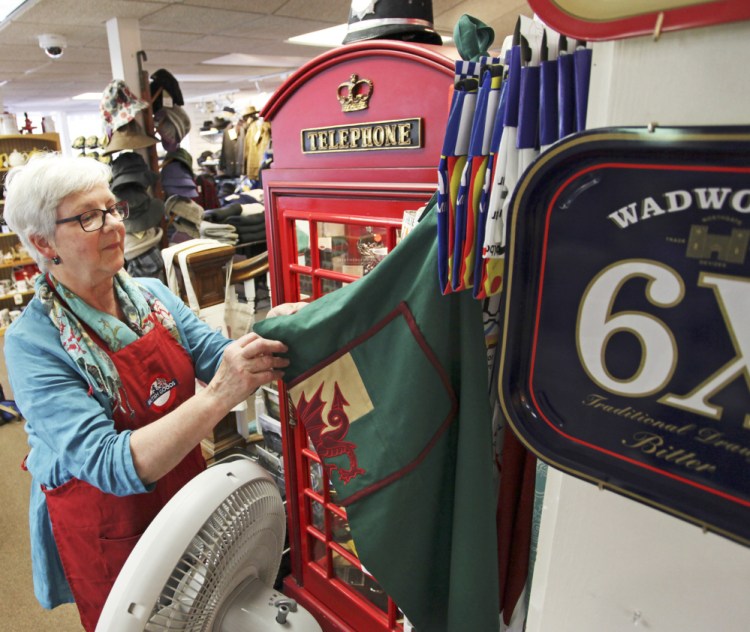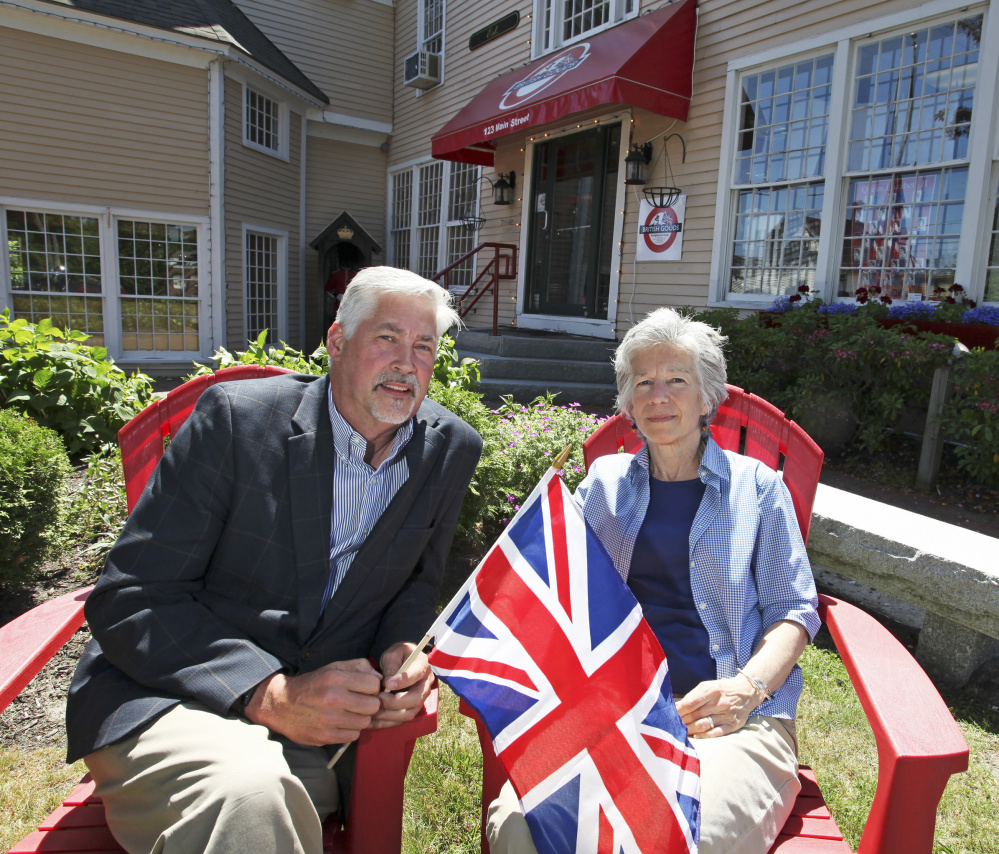Britain’s vote Thursday to exit the European Union probably will boost profits at British importer Lisa Bussey’s family-owned business in Freeport, but she said no one involved in Bridgham & Cook is happy about the decision.
“We’re not sitting here saying, ‘Oh wow, this is going to make imports cheaper,’ ” Bussey said. “I’m not an economist and I’m not a financial adviser, but I think this is a bad thing.”
Mainers who import goods and services from the United Kingdom and the European Union said that while the immediate impact on their businesses may be positive because of favorable currency exchange rates, they think the long-term effects will be mostly negative.
And Maine businesses that export goods to the U.K. and EU said the Brexit vote could hurt their operations right away. Maine tourism also is likely to take a hit from U.K. residents who may find a vacation in the U.S. too expensive for a weak pound sterling.
Tim Regan, a British national who lives in Falmouth and operates a semiconductor business in Portland and the U.K., said he is all for living in interesting times, but that the economic uncertainty caused by the Brexit vote cannot be good for anyone’s business.
“I think in the medium and long term, this is very bad news,” said Regan, CEO and chief technology officer of IN2FAB. “Nobody knows where it’s really going to go from here.”
Maine exported $416.7 million of goods to the 28 EU countries in 2015 and $2.7 billion of goods worldwide, according to data from the Maine International Trade Center. The U.K. is among Maine’s top-10 trade partners, with the state’s top exports being airplane parts, biotech products and candles, said Janine Bisaillon-Cary, the trade center’s president and state director of international trade. Wood pulp and jewelry round out the top five, she said. In all, Maine exported goods valued at $54.8 million to the U.K. in 2015.
The U.K. is also Maine’s No. 1 source of overseas visitors, said Carolann Ouellette, director of the Maine Office of Tourism. While only an estimated 21,000 Britons visited Maine in 2014, the most recent year available, their vacationing habits made them very a desirable group, she said.
“There are several important things about them: They stay a long time and they spend a lot of money,” Ouellette said.
The outcome of Thursday’s vote was immediately disastrous for global markets. The Dow Jones Industrial Average fell about 610 points, or 3.4 percent, to end the day at 17,401, while the Nasdaq fell 202 points, or 4.1 percent, to close at 4,708.
Things were looking far worse overseas as of 5 p.m. Friday: Germany’s DAX index was down 700 points, or 6.8 percent, France’s CAC 40 index had dropped 359 points, or 8 percent, and Japan’s Nikkei 225 index was down by more than 1,286 points, or nearly 8 percent.
Interestingly, the U.K.’s FTSE 100 index appeared to be taking the least amount of damage, as it was down only 199 points, or 3.2 percent. But where the country did take a major hit was in the value of its currency. The British pound sterling’s value fell by about 8.5 percent against the U.S. dollar before settling around $1.37 – a 30-year low.
That exchange rate is critical to both trade and tourism. A weaker pound means less buying power for Britons in the U.S., and more buying power for Americans in the U.K. It means U.S. exports will be more expensive, and British imports will be cheaper.
Still, it isn’t clear whether the pound’s decline is just a temporary reaction to the Brexit vote or a long-term trend, Bisaillon-Cary said.
“If the pound sterling does stay down … it will make Maine exports and U.S. exports more expensive,” she said. That would be bad news for exporters in Maine.
There are other issues related to the Brexit, Bisaillon-Cary said. When the U.K. becomes fully independent from the EU, it will have to negotiate new agreements with its trade partners, and trade with other European countries will no longer be seamless. That may create challenges for Maine’s international trade office in London, she said.
“There are going to be different duty and tariff rates – and it’s not going to be borderless,” she said.
The exchange rate is equally important when it comes to tourism, Ouellette said. While Britons are a fairly reliable group when it comes to Maine tourism, she said, they may opt for more affordable accommodations, shorten their stays, change travel dates to off-peak months and be more frugal while in Maine as a result of the weak pound.
“Exchange rates can have an impact on how they spend,” Ouellette said.
Despite those challenges, there are some potential upsides to the Brexit vote for Mainers.
Foremost among them: Travel to the U.K. will be more affordable for Mainers and other U.S. residents if the pound remains weak against the dollar. Similarly, British import goods will be cheaper.
Bussey, the importer in Freeport, said her customers are likely to see the effect of the dollar’s dominance over the pound when the holiday shopping season rolls around.
“It will certainly be a merrier Christmas here, because I think that’s when we’ll see the effects of the dollar versus the pound,” she said.
British investment in Maine also may increase because of the economic uncertainty caused by the country’s break from the EU, Bisaillon-Cary said.
“Investors look for stable markets,” she said. “It could be a couple years of uncertainty (in the U.K.)”
The fact that U.S. financial markets fell by less than their European and Asian counterparts is a sign that the U.S. economy remains stable despite Europe’s economic turmoil, said Jessamyn Norton, chief investment officer and senior vice president at Spinnaker Trust in Portland.
Still, she said investors’ larger concern is that the U.K. may be just the first of several nations to depart the EU. There has been speculation that countries like Spain or Italy may consider their own exits.
“We know there are other countries that have been itching to leave,” she said.
Send questions/comments to the editors.





Comments are no longer available on this story